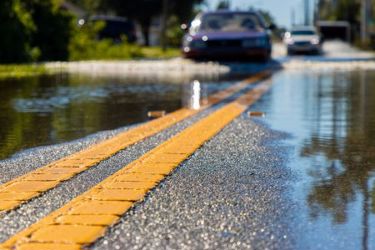Google Launches AI Tool To Help Water Systems Adapt To Increased Flooding


One of the world’s largest tech giants is putting its cutting-edge innovations to use for stormwater management, creating a tool that can better protect millions from climate-induced catastrophe.
“Google announced … that a tool using artificial intelligence to better predict river floods will be expanded to the U.S. and Canada, covering more than 800 North American riverside communities that are home to more than 12 million people,” Newsweek reported. “Google calls it Flood Hub, and it’s the latest example of how AI is being used to help adapt to extreme weather events associated with climate change.”
Google is more often criticized for its impact on growing climate problems, particularly as its data centers consume massive amounts of increasingly-precious water. But this latest tool seems to put the company’s latest technology to good use, as the threat of major flooding spreads across the U.S.
By leveraging AI, public data, and satellite imagery, Flood Hub can predict stormwater surges with longer lead times, helping water systems prepare for massive inundation. In Chile, for instance, it helped emergency responders improve evacuation and minimize damage from a recent stormwater surge. In Nigeria, Google and the UN built a system that sends flooding alerts to governments. And a group in India uses Flood Hub to alert potential victims via WhatsApp.
“Weather extremes are part of what some call the ‘new normal’ of climate change, and … living in such an altered world will likely require something beyond normal intelligence,” according to Newsweek. “AI is rapidly emerging to fill that role.”
Still, Flood Hub is a new tool and AI is a burgeoning technology, so there is work that still needs to be done to perfect this approach, as with the growing list of additional innovations that stormwater managers will come to rely upon as the issues grow worse.
“Right now, Flood Hub can forecast ‘riverine’ floods, where rivers overflow after an extended period of rain. But it can’t yet predict sudden flash floods,” per Fast Company. “It also isn’t as accurate in urban areas, where multiple factors are at play, such as potential infrastructure failures.”
Still, despite any shortcomings, stormwater systems across the country and world will take any help against flooding that they can get — particularly from Google.
To read more about the growing threat of floods, visit Water Online’s Stormwater Management Solutions Center.
